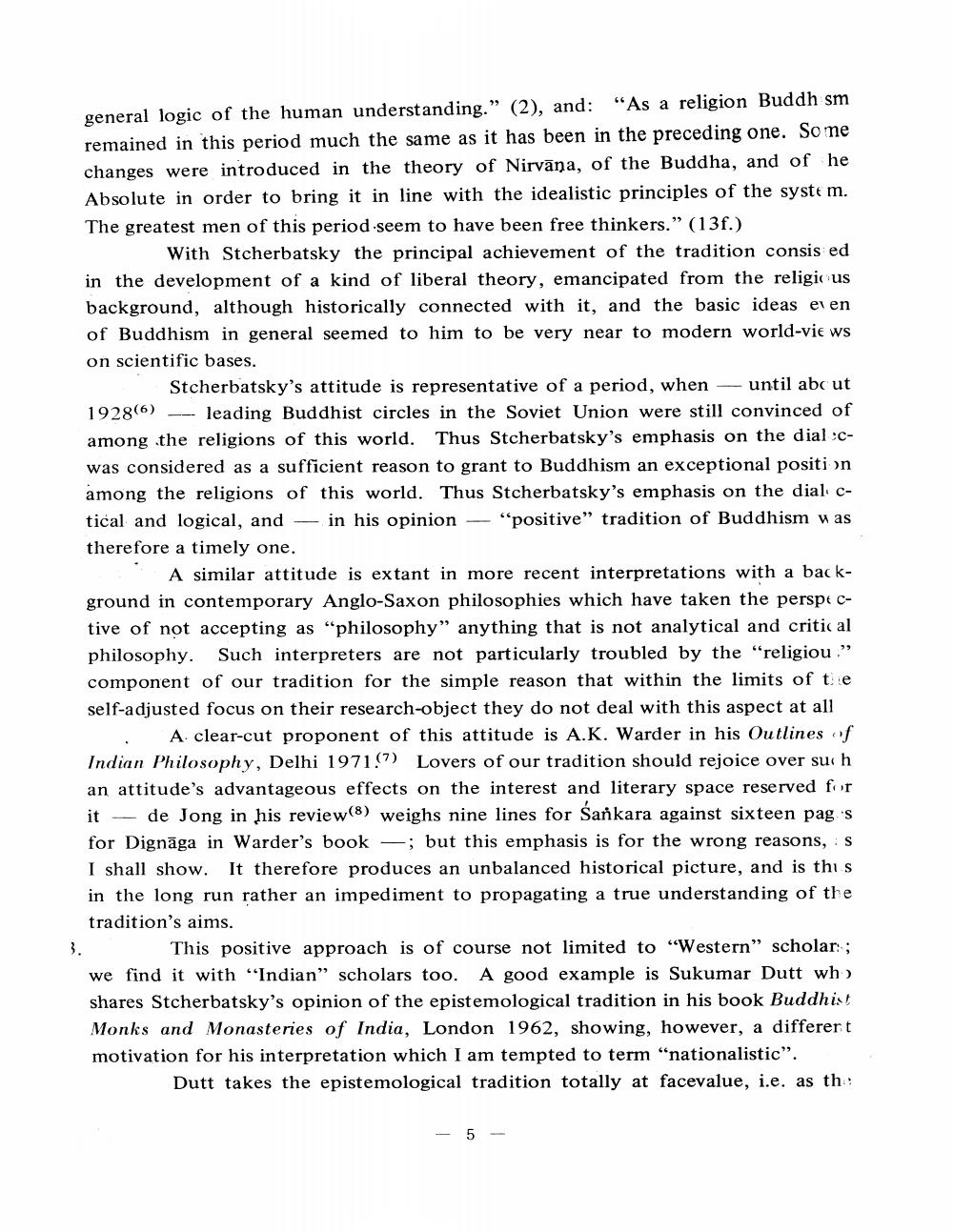Book Title: Spiritual Place Of Epistemological Tradition In Buddhism Author(s): Ernst Steinkellner Publisher: Ernst Steinkellner View full book textPage 5
________________ general logic of the human understanding.” (2), and: “As a religion Buddh sm remained in this period much the same as it has been in the preceding one. So ne changes were introduced in the theory of Nirvāṇa, of the Buddha, and of he Absolute in order to bring it in line with the idealistic principles of the system. The greatest men of this period seem to have been free thinkers.” (13f.) With Stcherbatsky the principal achievement of the tradition consis ed in the development of a kind of liberal theory, emancipated from the religious background, although historically connected with it, and the basic ideas ei en of Buddhism in general seemed to him to be very near to modern world-views on scientific bases. Stcherbatsky's attitude is representative of a period, when - until abc ut 1928(6) --- leading Buddhist circles in the Soviet Union were still convinced of among the religions of this world. Thus Stcherbatsky's emphasis on the dial •cwas considered as a sufficient reason to grant to Buddhism an exceptional position among the religions of this world. Thus Stcherbatsky's emphasis on the dial. ctical and logical, and — in his opinion — "positive" tradition of Buddhism was therefore a timely one. A similar attitude is extant in more recent interpretations with a background in contemporary Anglo-Saxon philosophies which have taken the perspective of not accepting as “philosophy" anything that is not analytical and critic al philosophy. Such interpreters are not particularly troubled by the “religiou." component of our tradition for the simple reason that within the limits of te self-adjusted focus on their research-object they do not deal with this aspect at all .. A. clear-cut proponent of this attitude is A.K. Warder in his Outlines of Indian Philosophy, Delhi 1971.)) Lovers of our tradition should rejoice over such an attitude's advantageous effects on the interest and literary space reserved for it - de Jong in his review(8) weighs nine lines for Sankara against sixteen pag 's for Dignāga in Warder's book —; but this emphasis is for the wrong reasons, s I shall show. It therefore produces an unbalanced historical picture, and is thus in the long run rather an impediment to propagating a true understanding of the tradition's aims. This positive approach is of course not limited to “Western" scholar; we find it with "Indian" scholars too. A good example is Sukumar Dutt wh ) shares Stcherbatsky's opinion of the epistemological tradition in his book Buddhist Monks and Monasteries of India, London 1962, showing, however, a differert motivation for his interpretation which I am tempted to term “nationalistic". Dutt takes the epistemological tradition totally at facevalue, i.e. as th: - 5 -Page Navigation
1 ... 3 4 5 6 7 8 9 10 11 12 13 14 15 16 17 18
